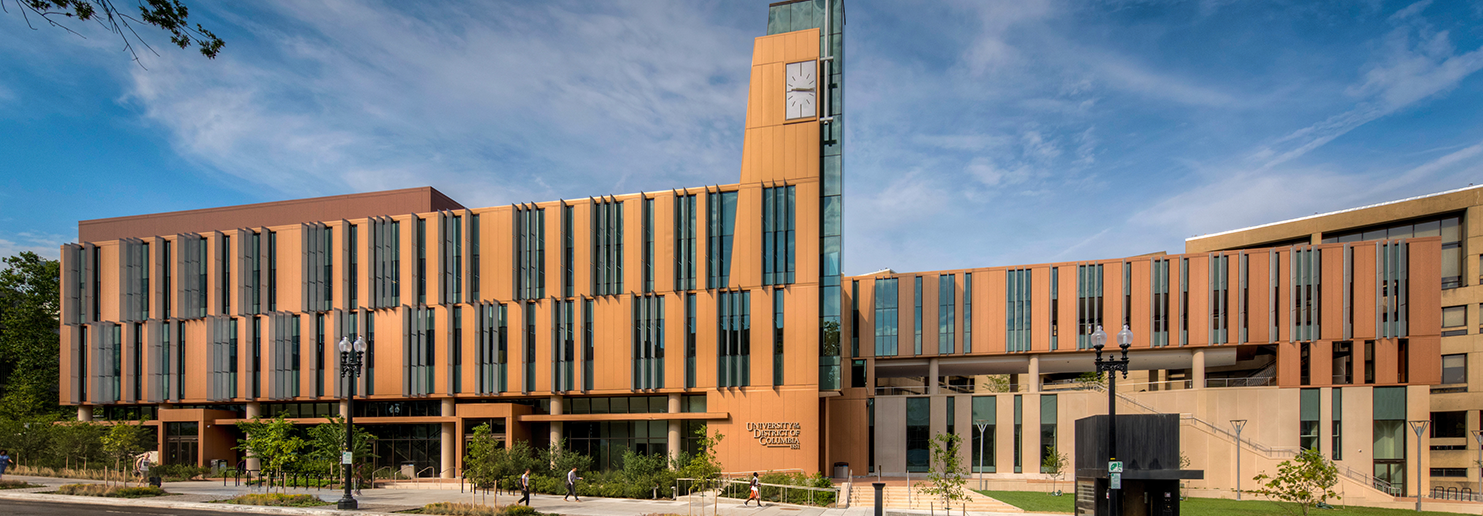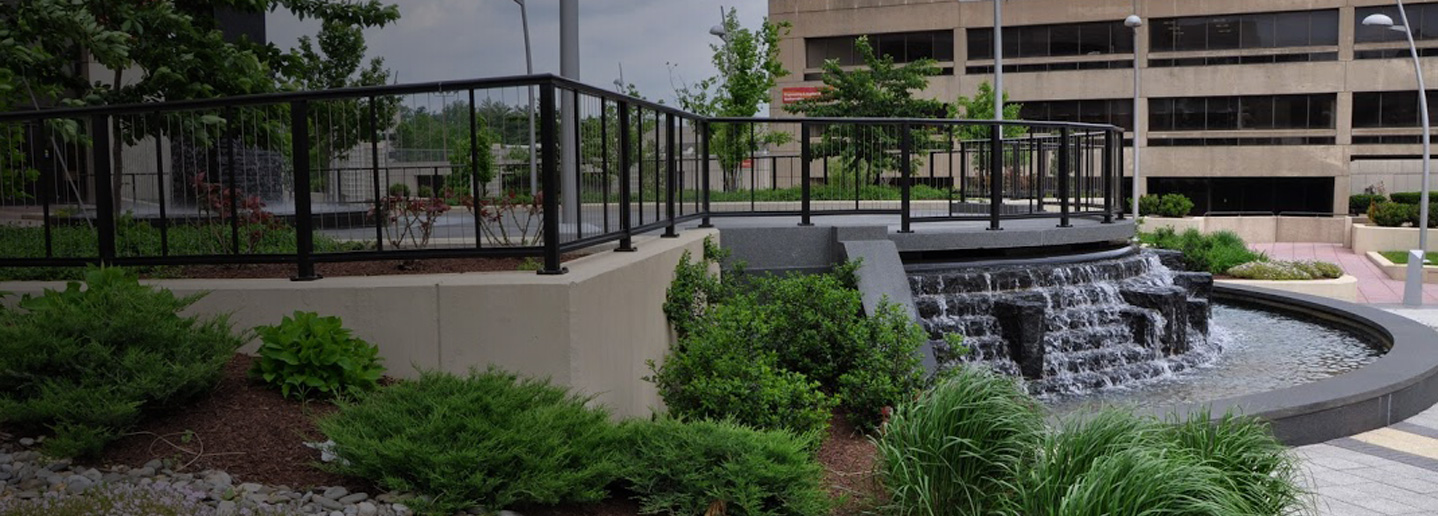Please see below about how COVID-19 has affected our operations:
As we work remotely during this time, the Counseling and Wellness Center continues to provide services to the UDC community. Part of those services includes telemental health sessions, which are provided in accordance with ethical guidelines and legal regulations of D.C. and state laws across the country and internationally. Therefore, due to licensure requirements, students who are physically located outside of certain jurisdictions, may not be able to participate in all of the services that we provide. Please reach out to us at (202) 274-6000 to identify ways we can support you directly and/or in referring you to other available resources.
COVID-19 Student Resources
Dear Firebirds,
It is normal and appropriate to experience stress, anxiety, and fear during the midst of this pandemic. These are not easy times, and we know the instability and isolation that this pandemic is causing can present tremendous challenges and upheavals in our daily lives, as well as threats to our security, stability, and ability to plan. We hope that you will take care of yourselves as best as possible during this challenging time, and we are offering resources for support. In spite of the devastating impact this illness has had and will have on many, this time period is one in which we can come together to help one another, appreciate and support our loved ones, and improve our resiliency. It is a time for us all to practice self-care, manage stress, and refine our skills in dealing with ambiguity, uncertainty, and adversity.
It may be helpful for all of us to be reminded of some coping skills to help get through this pandemic and period of closure. It’s important to stay grounded, to not over- or -underestimate the potential risk of the virus. Adhere unwaveringly to the guidance of public health officials and the Centers for Disease Control (CDC) guidance on how to protect yourself from COVID-19 infection. Remember that it is normal for anxiety to increase when faced with a new or unknown challenge, and lean on whatever has helped you to get through challenges and massive curveballs before. Get physical activity on most days if possible and try to enjoy the outdoors. Stay connected with friends and loved ones through face-time, chats, social media, etc. The news and constant focus on the pandemic can become overwhelming and make it hard to keep things in perspective and to remain positive, driven, and hopeful. Take breaks from the news and all of the information to avoid raising anxiety levels and being overconsumed with the problems of this pandemic. Finding a way to help others will help you too, by improving your mood and increasing your sense of well-being. Practice self-care – literally, be good to yourself. At the bottom of this e-mail, there are several amazing resources to help you, including apps, videos, virtual counseling, 24/7/365 assistance, and more information on behavioral health during the COVID-19.
If you feel you need more assistance in the way of counseling, the UDC Counseling and Wellness Center is still here for you. Counselors from the UDC Counseling and Wellness Center are available to meet with students who would like to participate in teletherapy or need emotional support during the COVID-19 crisis. In order to make an appointment, students can call (202) 274-6000 between 9 a.m. – 5 p.m. Students can also set up an appointment by e-mailing Ms. Shawnda Sanford ssanford@udc.edu, Administrative Assistant or Dr. Butler-Johnson sbutlerjohnson@udc.edu, Counseling and Wellness Center Director.
The Counseling and Wellness Center is also providing three drop-in support groups to the UDC student body to assist in coping during these unprecedented times. The support groups aim to help students connect with peers, receive emotional support, manage feelings of loneliness and isolation, and learn healthy coping strategies for getting through the COVID-19 pandemic. Support group sessions will begin during the week of May 4th. Session times will be offered on Mondays at 2 p.m. beginning on May 4, 2020, and Thursdays at 3 p.m. beginning on May 7, 2020. An additional group will be offered in mid-May; the day and time will be available through the Counseling and Wellness Center website, www.udc.edu/cwc. To sign up for a group session, call (202) 274-6000, or email Ms. Shawnda Sanford, Administrative Assistant, at ssanford@udc.edu or Dr. Butler-Johnson, Counseling and Wellness Center Director at sbutlerjohnson@udc.edu.
In order to participate in video therapy, students simply need a device with a camera, audio, and internet access. Students do not need any software to participate in therapy via video, and mobile phones can be used for video therapy if needed. The counselor will send the student a link to use to check-in for his/her/their appointment. Students should expect to participate in a 2 session initial assessment process, just as they would for an in-person session. Paperwork will be sent to students to be completed and submitted prior to the appointment.
Telemental health sessions are provided in accordance with ethical guidelines and legal regulations of D.C. and state laws across the country. Students who are residing in some states will not be able to participate in telemental health with a UDC clinician due to strict out of state licensure prohibitions. Students who wish to seek counseling or mental health treatment with an off-campus, community-based provider can utilize our Referral guide of their insurance company’s “Find a Doctor” page on the insurance plan website.
Students are also encouraged to Students are also encouraged to take advantage of the resources made available through the UDC sponsored Student Health Plan. Better help is a virtual counseling service that may be helpful during this closure. Better help is a national virtual counseling service that provides live chat, video, phone, and ongoing text counseling with licensed mental health practitioners. If you have the UDC sponsored health insurance plan, there is no consultation fee for this service; every communication with a better help counselor is covered 100% during your policy period. Students who do not have the UDC sponsored health insurance plan can access better help by clicking on “Get Started” and selecting “Registering for paid account.” The cost is $50 a week (charged monthly) and includes unlimited text-based counseling and a weekly live session. The process is initiated by registering at www.counseling4students.com.
The Student Assistance Program (SAP) is an additional resource that is available to students insured by the UDC Student Insurance Plan. SAP provides 24/7/365 access to confidential counseling services, legal and financial services, mediation, innovative web-based services, and other assistance to address personal issues. SAP can help students deal with everything from missing loved ones to helping renew a lease. SAP can be reached by calling the toll-free number on the back of your card.
If you are experiencing a mental health emergency, call 911 or go to the nearest hospital emergency room. If you are experiencing suicidal thoughts or progress to thinking about a plan, call 911 or report to the nearest hospital emergency room. You can also call the National Suicide Prevention hotline at 1800-273-TALK (1-800-273-8255). The D.C. Access Helpline can be reached at 1-888-7-WE-HELP or 1-888- 793-4357 for 24/7, 365 assistance for dealing with mental health crises. The DC Access Helpline is run by the D.C. Department of Behavioral Health and connect you with a local D.C. mental health clinic.
Ongoing text communication is available through the Crisis Text Line. Crisis Counselors, individuals trained to help individuals deal with a mental health crisis, provide active listening, and collaborative problem solving, are available 24/7/365. Crisis counselors can be reached by texting HOME to 741741.
Below you will find some additional resources that may be helpful during the COVID-19 closure period.
Tools and Information Sources
211 is an organization that connects you to local resources to address essential needs, crises and emergencies, and disaster assistance Simply visit www.211.org and input your zip code to be connected to help and resources.
Therapist Assisted Online (TAO) is currently offering a free library of mindfulness, breathing, and calming videos. These videos, which will only be offered free for a limited time, are great tools for improving deep breathing skills, using guided visualization, improving sleep, and letting go.
Active Minds, a national peer-led organization devoted to promoting mental health awareness on university campuses, has created a everywhere a special online hub for students to support their mental health during COVID-19. Webinars for students are also announced at this page.
District of Columbia Coronavirus Hub https://coronavirus.dc.gov/ Information on local testing, resources, data, and updates are available and updated on a daily basis.
Mental Health Apps: Consider making use on one of the many mental health apps that are available for free and for pay. You might find this link helpful in finding Mental Health Apps Here are some additional wellness-related apps:
- The Centers for Disease Control (CDC) has guidance on managing mental health and coping during COVID-19.
- Anxiety and Depression Association of America Psychologist Jelena Kecmanovic provides 7 excellent science-based strategies and tips for coping with COVID-19 anxiety.
- The World Health Organization (WHO) has information on travel, media resources, and other research on COVID-19
- Substance Abuse and Mental Health Administration (SAMHSA) provides the Coping with an Epidemic Fact Sheet
- The American Psychological Association provides information on Dealing with Social Distancing. Dealing with Social Distancing
- The National Child Traumatic Stress Network provides guidance on Helping Families Cope with the Coronavirus Disease
- At this link, you will find a host of websites, educational institutions, and other businesses that provide free resources and services for general Well-Being during COVID-19 Pandemic.




